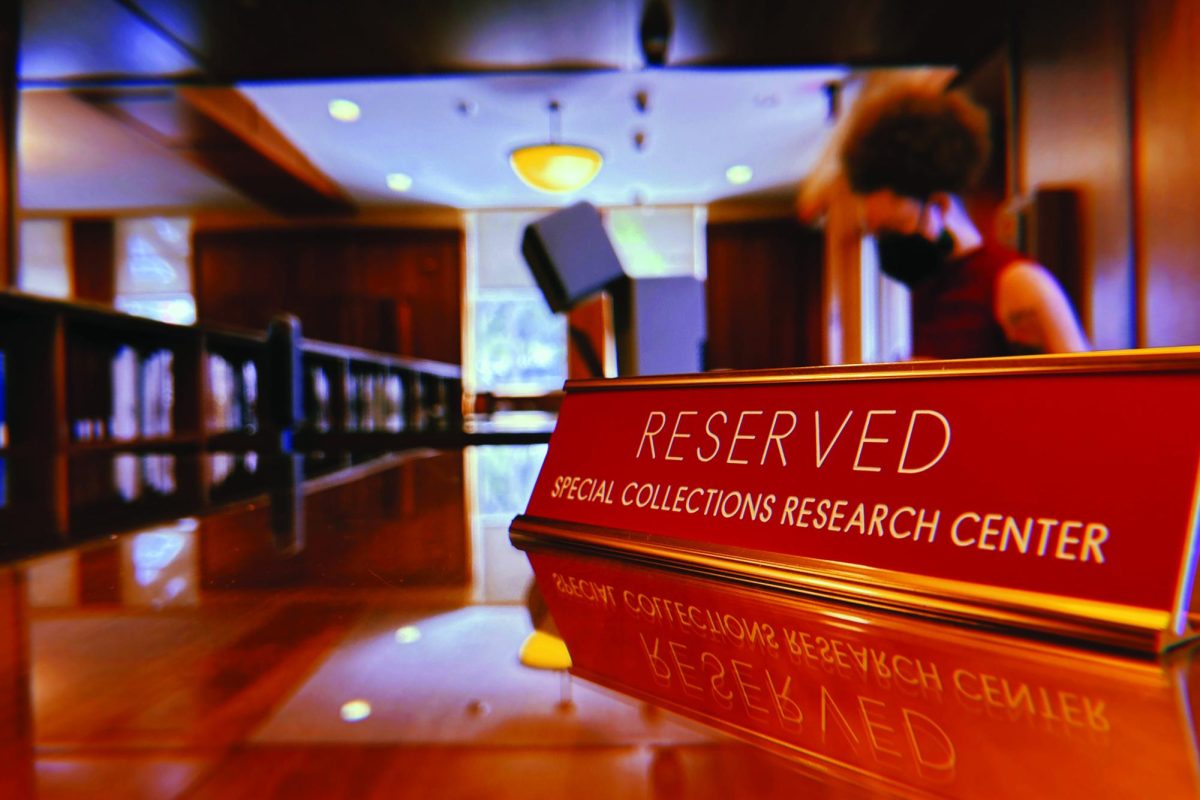The Elections Commission is withholding the results for the student body president elections because of the decision to hold a disqualification hearing for Will Langley, candidate for student body president and junior in political science. Results for all other races were revealed.
The hearing is scheduled for 9 p.m. Friday.
According to the commission, there will be two additional complaints invovling student body presidential candidates heard today.They declined to reveal the candidates in question.
Langley was issued four warnings. According to the commission, the accumulation of three warnings qualifies as grounds for disqualification.
“I have yet to be notified officially by the Elections Commission [about what they decided],” Langley said. “Obviously it’s pure politics what’s going on, and again I’ve got to say it’s Will Quick’s last stand to try to win this election.”
Langley received three warnings for sending mass e-mails, breaking a statute that states candidates cannot e-mail voters without their permission.
“The three warnings for the same issue is uncalled for, and I intend to appeal if he doesn’t,” Sen. Erich Fabricius, graduate student in economics and management, said.
Langley received one warning for chalking at the entrance to Fountain Dining Hall, breaking the student body statute stating campaign materials cannot be present within 50 feet of a polling site. Commissioners said they believe the chalk was put at the entrance after it was designated as a polling site.
“I still stand very confident that I did not break any rules; that everything we did was within the statutes,” he said. “If I’m more creative and more innovative than my opponents, then you can’t penalize me for that.”
The Commission Subcommittee for Violations discussed the complaints Tuesday night and passed its recommendation for action to the commission.
“Our recommendation is a warning for blatant disregard,” Megan Peters, elections commissioner and sophomore in English, said.
The commission passed the motion.
Langley said the Elections Commission’s rulings and actions weren’t fair.
“They’re making value calls, and they need to make calls by the rule book,” he said. “They’re putting their personal beliefs into it and that’s not right — it’s not fair.”
Langley was informed by the Elections Commission that he could defend his actions at Tuesday’s meeting, but failed to show up.
As of yesterday, he has 24 hours to make his decision to appeal.
“I told him, ‘You can come Wednesday, we’d love to have you, but Tuesday is your chance to talk,'” Danielle Seale, elections commissioner and senior in political science and philosophy, said.
The commission proceeded without Langley’s presence despite objection from elections commissioner Brian Godfrey.
DeVan Barbour spoke in defense of Langley although he indicated he was not there to represent the candidate.
He said Langley spoke with Elections Commission Chair Kevin Hassell about issues pertaining to campaigning and confirmed that Hassell approved Langley’s actions.
“Yeah, we’ve already discussed the clothesline ordeal, that’s old news,” Langley said. “They’ve already ruled that it’s okay to do.”
Langley said that he spoke with Hassell “a lot” about his campaign and that some of the charges currently against him were approved by Hassell.
“They ruled on [e-mails] a while back, so we were just following those guidelines and those rules when we sent the e-mails,” he said. “We broke no rules, we played by the book.”
Barbour stated that Langley earned all of his votes.
“[Langley] deserves every one he’s getting,” Barbour said. “But if he calls you and asks if it’s going to be all right, don’t tell him yes when you know it’s not.”
Candidates appeared to have problems determining the definition of an “acquaintance,” as e-mails may be sent to acquaintances.
The commission helped to clear up the confusion.
“You have to have a mutual understanding or at least a mutual interaction to be an acquaintance,” Hassell said.
This is the first time the committee has defined the word “acquaintance.”
Godfrey, a graduate student in public administration, however, said the definition came too late.
“It’s kind of late to be defining it but you know, better late than never,” he said.
There were numerous complaints filed against Langley, one of which was referred to student conduct and another referred to University Housing. He received two notifications.
Essentially, notifications signify a slap on the wrist — a tool used to make a candidate aware of their violation and to prevent them from repeating their actions.
Will Quick, candidate for student body president and senior in biomedical engineering, received one notification because his fliers were posted on resident adviser boards in Sullivan Hall, which were taken down Tuesday.
Seale, who is an RA in Sullivan, said she saw students — not Quick — putting up the fliers on a board downstairs in the residence hall. The commission said that candidates are responsible for their staffs’ actions.
Cody Williams received one notification for placing a banner within 50 feet of a polling site.
Williams, a candidate for student body president and senior in agriculture business management, said he placed the signs there before spring break. He also said that the commission didn’t notify him that he was breaking the rules.
“According to your statutes, it’s the duty of the commission to remove [campaign materials] from polling sites,” he said. “It’s your fault, not mine.”



